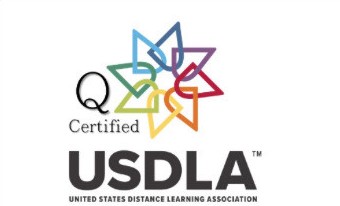Find an Innovative Program, Designed for the Working Professional



Empowering Your Future
The Department of Advanced Education Programs (AEP) is committed to providing innovative, flexible, high-quality educational solutions that prepare you to excel in your chosen field. Our programs are designed to meet the evolving challenges of today's professional landscape while accommodating your busy lifestyle.
A Global Community of Learners
Our online programs allow you to participate from anywhere in the world. You will quickly become part of a vibrant, close-knit community of learners. Our courses leverage diverse, cutting-edge communication tools and technologies for a rich, engaging, collaborative learning experience that rivals traditional classroom settings.
Flexible Online Programs Tailored to Your Goals
The programs are designed to fit seamlessly into your life and align with your learning objectives. Most of our offerings are entirely online, with a few exceptions with a residency component. The Clinical Mental Health Counseling, Chemistry, and School Psychology programs have an on-campus attendance requirement that we have thoughtfully scheduled on weekends or during summer breaks to accommodate working professionals.
Explore Our Programs
Discover the wide range of opportunities available through our department. Click on the program links below to access detailed information. Start your journey toward advanced education and career growth with the Department of Advanced Education Programs today!
Graduate Programs
- Master's Degrees
- Building Leadership
- Clinical Mental Health Counseling
- Effective Teacher, The
- English for Speakers of other Languages
- Exceptional and Diverse Learners
- Instructional Coaching
- Instructional Design
- Instructional Technology
- Library Media Specialist
- Reading Specialist
- School Counseling
- Science of Language and Literacy
- Special Education - Gifted
- Special Education - High Incidence
- Special Education - Low Incidence
- STEM Education
- Transition to Teaching
Advanced & Doctoral Programs
- Education Specialist
Non-Degree Certifications & Short Programs
- Certificate Programs
- Endorsements
After you have been accepted into a program, create your log-in account with Workday. This process will generate a FHSU student gmail account; email your advisor with your new FHSU student gmail. In the subject line, indicate that you are a new advisee in (EDL, SPED, READ, MLS, COUN, MIT, etc) program. Whether your instructor uses Blackboard or Google for their learning management system, your FHSU student gmail is the only email officially recognized by the university.
CAEP Accreditation
The Department of Advanced Education Programs holds Advanced-Level Accreditation from the Council for the Accreditation of Educator Preparation (CAEP). See the Fort Hays State University CAEP Accredited Provider page for details.
Advanced-Level Accreditation is provided at the post-baccalaureate or graduate levels leading to licensure, certification, or endorsement. Advanced-Level Programs are designed to develop P-12 teachers who have already completed an initial-licensure program, currently licensed administrators, or other certified (or similar state language) school professionals for employment in P-12 schools/districts. CAEP's Advanced-Level accreditation does not include any advanced-level program not specific to the preparation of teachers or other school professionals for P-12 schools/districts; any advanced-level non-licensure programs, including those specific to content areas; or Educational leadership programs not specific to the preparation of teachers or other school professionals for P-12 schools/districts.
Q Certified USDLA
FHSU earned the renewal of its five-year United States Distance Learning Association (USDLA) Quality Standards certification. The announcement of the recertification comes after an extensive 91-point quality review self-inspection and a site visit by a team of USDLA examiners.

Licensure in Other States
Completion of Fort Hays State University’s approved programs for teacher licensure and added endorsements do not automatically guarantee that you will be able to obtain a license in another state. You should check with the state department of education in the state you wish to obtain a license in well in advance of completing FHSU’s program or you may contact your advisor or Kerry Schuckman, FHSU Licensure Officer, kschuckm@fhsu.edu, 785-628-4542 for assistance in obtaining information regarding licensure in that state. It is generally recommended that you apply first for a Kansas teaching license, regardless if you plan to teach in Kansas or not. This sometimes provides a smoother, quicker process when applying for the out-of-state license. However, each state has its own licensure requirements, so it is best to contact the relevant state department of education or our department prior to beginning your program. A link for State’s websites is provided below.
